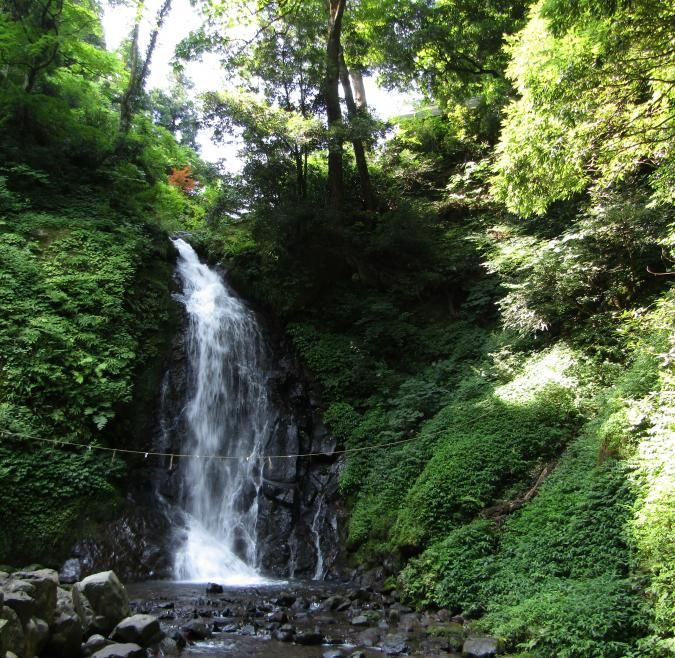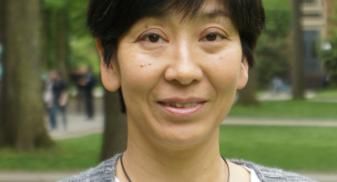Embedded Fall: Honors- Rutgers Meets Japan
The Program
Explore Japan, old and new, as you extend your imagination to 150 years ago, when two Rutgers students from opposite sides of the Pacific Ocean discovered a friendship that bridged two worlds.
Applications for this program are no longer being accepted due to the high volume of applications received. Thank you for your interest!
The visit begins at Yokohama, a vibrant and cosmopolitan port city, where the first American missionaries laid their feet in 1859. We will visit the archives there and participate in gatherings with students and teachers at Ferris High School/University. The journey continues to Fukui, the home of Rutgers’ first Japanese student, to experience some of traditional Japan with Zen meditation at the temple, Japanese papermaking and more. We will participate in a Fukui University seminar and engage in activities with the students there. We conclude at Tokyo, the ever-changing capital city of Japan, as we follow the footsteps of Rutgers alumnus, William E. Griffis, and others who witnessed its rapid modernization in the late nineteenth century.

Program Locations

Japan
Fukui
In Fukui, the home of Rutgers’ first Japanese samurai student, we will experience some of the old, traditional Japanese culture (Zen meditation at the temple, Japanese papermaking, etc.). We will also join students and faculty at the Fukui University in their seminars and other activities.

Japan
Yokohama
We will begin our trip with a dinner at Chinatown in Yokohama, a vibrant and cosmopolitan port city, where the first American missionaries laid their feet in 1859. We will visit museums and archives and participate in gatherings with students and teachers at Ferris High School/University which was headed by Rutgers alumni in its early years.

Japan
Tokyo
Tokyo, the ever-changing capital city of Japan. In Tokyo, we will follow the footsteps of William E. Griffis, as we visit the ancient temple Asakusa and the University of Tokyo, where Griffis taught for two years before returning to the U.S.
Academics
Applications for this program are no longer being accepted due to the high volume of applications received. Thank you for your interest!
The field experience, led by Professor Haruko Wakabayashi (Asian Language and Cultures) and Dr. Fernanda Perrone (Alexander Library Special Collections), will explore Japan that William E. Griffis saw 150 years ago and the legacies of early Rutgers-Japan relationship that are present in Yokohama, Fukui, and Tokyo. Through walking tours, museum and archival visits, and engagement in seminars and workshops with Japanese students and scholars, students will investigate the nature of early cultural contacts between the United States and Japan and the diverse perspectives through which the encounters have been remembered and told.
No knowledge of Japanese required. Students from all backgrounds are encouraged to apply.
This trip is part of an Interdisciplinary Honors Seminar "Rutgers meets Japan: Revisiting Early U.S.- Japan Encounters". Students will register for this 3 credit course and add a 1 credit study abroad experience.
Host institutions: Ferris Women’s High School/University (Yokohama), Fukui University, and Fukui Prefecture/City
Housing and Meals
Students will spend time in Fukui, Tokyo and Kyoto. Students will share double rooms in hotels. Some group dinners/lunch are included. Students are responsible for other meals.
Financial Information
Program Costs
| All Students | |
|---|---|
| Program Cost | $1,250 |
Program Cost includes:
• Housing
• Most meals
• Program excursions
• In-country transportation
• Administrative Fees
• Emergency Insurance Abroad
Out-of-Pocket Costs
| Meals | $200 |
| Personal Expenses | $100 |
| Airfare | $1,300 |
| Total | $1,600.00 |
Out-of-Pocket Cost includes:
The above costs are estimations and represent the known out-of-pocket costs students encounter during their time abroad.
Some of these expenses will be paid for prior to going abroad while some of these expenses, such as meals and local transportation, will be paid in-country as part of your daily expenses. As you plan, you will need to budget these costs and spend wisely throughout your time abroad.
* A subsidy of $500 per student will be available to help cover airfare through Honors College and SAS Honors Programs.


